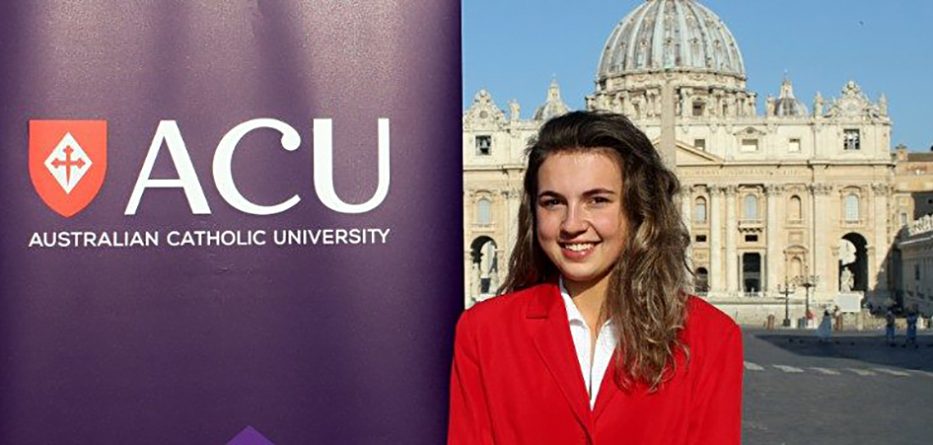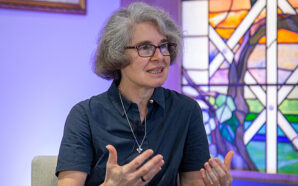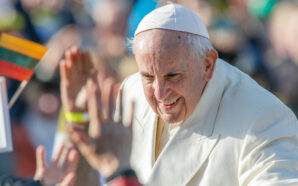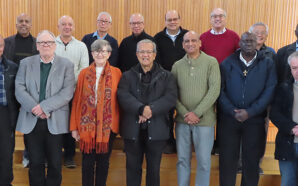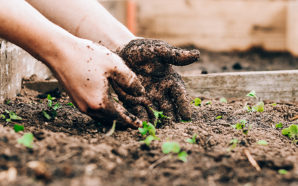Established in 2016, the Francis Xavier Conaci Scholarship is a wonderful opportunity for an Aboriginal or Torres Strait Islander student to undertake study at the ACU Rome Campus as part of their core curriculum requirements.
Every year, the Australian Embassy to the Holy See joins forces with the Australian Catholic University Rome Campus to host a scholar to whom a very special scholarship has been awarded.
It’s the Francis Xavier Conaci Scholarship, established in recognition of an Aboriginal student, who travelled to Rome in 1849 from New Norcia Western Australia to study in Rome with the aim of travelling back to his country after his studies to spread the Gospel message.
Unfortunately, aged only 21, Conaci died while in Rome, and is understood to be buried with other Benedictine community members in a grave in the Basilica of St. Paul’s Outside the Walls.
The recipient of the 2019 scholarship, currently in its third year, is Aboriginal student, Calle Nicholls who describes herself as a “proud woman of the Wiradjuri tribe.”
Calle, who is pursuing a Bachelor of Social Work, told Linda Bordoni she aims to work in rural Australia after graduation in particular with youth and with young people who have been incarcerated.
“I would like to work with indigenous kids, in Western Australia, where, in the Northern Territory the youth incarceration rates are quite high; I would like to go in there and see what needs to be fixed” said Calle Nicholls as she geared up for an exciting three weeks in the eternal city.
The Conaci Scholarship goes to Aboriginal or Torres Strait Islander students. Calle told me that the tribe to which she belongs, the Wiradjuri tribe, is the largest tribe in the country; its territory is about half the size of Italy and it is located in New South Wales, Australia.
The importance of identity
Calle expressed her belief that “identity” is a fundamental value, especially for those who belong to or who are the offspring of the ‘stolen generations’ – “where children were taken from the indigenous communities and stripped of their identities and culture.”
“So intergenerational trauma has come about and there is a big focus and a big push on identifying as a proud indigenous person” she said.
Calle explained that her own mother was a part of the ‘stolen generations’ and so she is indirectly affected; this she says, is possibly one of the reasons she feels so deeply about facing the issues and the consequences brought about by historical mistakes, and she thinks she can do this working with young incarcerated people who are bearing the brunt of old wrongs.
“The root of the problems is often what went on in the past and it’s not being properly addressed” she said.
Shining the light on who the ‘stolen generations’ are, Calle explained that in Australia, Europeans didn’t necessarily agree with the way indigenous people were raising their children: “So, with good intention, they wanted to give these children the means to succeed in a westernised lifestyle (taking them away from their families and communities) and in the end it caused a lot of harm.”
“It meant the removal of children who were deprived of families and their culture” she said.
Closing the gap
Australia has made it a matter of pride to apologise for past mistakes and do everything possible to promote healing and reconciliation with a series of initiatives.
One such initiative is the NAIDOC Week in July, which celebrates the history, culture and achievements of Aboriginal and Torres Strait Islander peoples.
It isn’t by chance that the Conaci Scholarship takes place during the NAIDOC Week and Calle pointed out that the theme for the week this year is “Voice, Treaty, Truth” focusing on really listening to the indigenous peoples.
She also talked about a government-funded imitative entitled “Closing the Gap” that looks at seven points where indigenous people are disadvantaged – for example in education, health, mental health etc.
“We want to be heard. The truth has come out and it’s about accepting that and doing what we can to make sure we become one” she said.
Calle noted that the indigenous Australians are the oldest living nation in the world, “so even although we say that Australia is a young country, it actually has an incredibly old history that too often goes unseen so it’s very important that we recognise that.”
The unit she is studying is focused on social justice and Calle remarked on how enriching it is to do so in a place like Rome. She noted that Catholic social doctrine will be part of her studies and said she looks up to Pope Francis and to the approach he is taking.
“I believe that sustainability and social justice are issues that need to be addressed and he is doing the right thing!” she said.
The Australian Embassy to the Holy See and Francis Xavier Conaci
Calle expressed gratitude to the Australian Embassy to the Holy See and to its staff that, she said, has shown her around the eternal city and spoke to her about the achievements of Francis Xavier Conaci.
“I’m aware that the Embassy is continuously looking for new information regarding Conaci, so it’s very interesting to find out what he did while he was here in Rome” she said.
It is an inspiration to follow in his footsteps “taking every opportunity to learn.”
Being in Rome, Calle concluded, gives me new perspectives and helps me be open-minded so when I go back to Australia, I will have a better understanding and “perhaps better ideas or ways we can go about things and hopefully advocate for the right things in the right way.”
With thanks to Vatican News and Linda Bordoni, where this article originally appeared.




